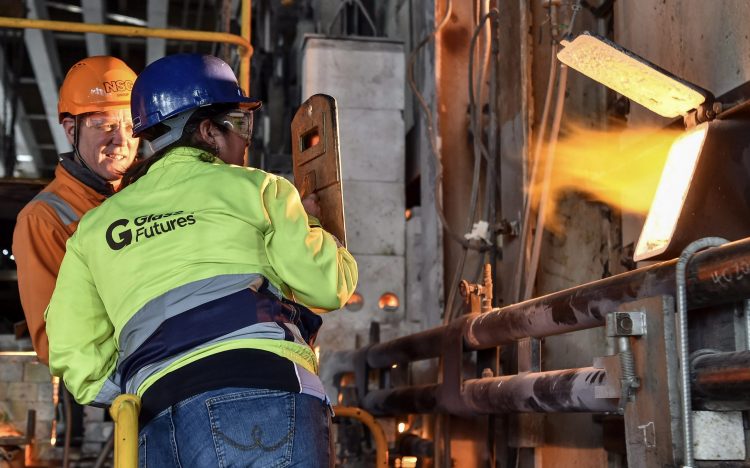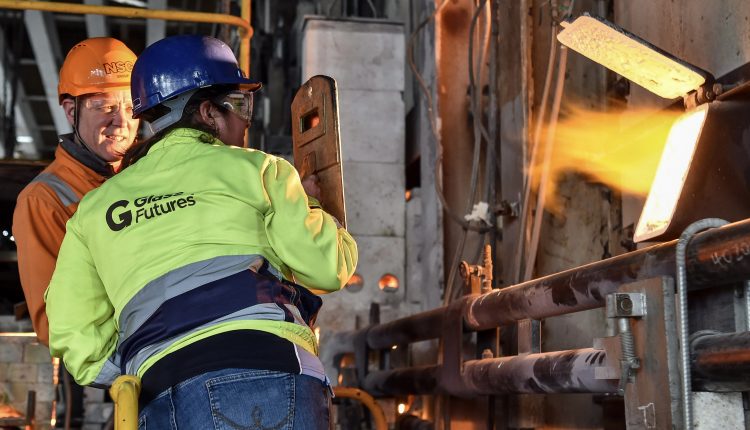Glassmaker Pilkington says it has fired its Liverpool city region furnace using 100% biofuel which it claims is a world first. Tony McDonough reports

Pilkington says it is the first glassmaker in the world to fire its furnace using 100% biofuel.
In an industry trial to find sustainable alternatives to natural gas, Pilkington fired its furnace at its factory in St Helens for four days using only biofuel. It created the 165,000 m2 of the lowest carbon float glass ever made.
Part of the Japanese-owned NSG Group, Pilkington says the biofuel emits around 80% less CO2. The trial forms part of a £7.1m project led by industry research and technology organisation Glass Futures.
READ MORE: Work starts on £54m Glass Futures project
Working under the Department for Business, Energy and Industrial Strategy’s Energy Innovation Programme, it aims to demonstrate that the furnace could run safely at full production on the low-carbon fuel without impacting product quality.
In August 2020, as part of the HyNet hydrogen project, Pilkington achieved a global first by firing 100% hydrogen in part of its furnace. This demonstrated that the full furnace could be run on the hydrogen blend, without compromising on quality standards or operational performance.
Neil Syder, managing director at Pilkington UK, said: “Our world-first trial with Glass Futures proves how biofuel presents a realistic low-carbon alternative to natural gas, which will allow manufacturers to cut thousands of tonnes of CO2 from their production years ahead of alternative zero-carbon options becoming more readily available.
“Last Summer, we became the first glass manufacturer in the world to fire a furnace with hydrogen, which represented a major step forward towards our future as a net-zero industry.
“But a significant body of work remains before hydrogen and electrification become feasible alternatives to natural gas for glassmakers, making biofuels an important transitionary fuel.”
St Helens has long been associated with glassmaking. In 1773, the British Caste Plate Glass Company was established at Ravenhead, now part of the town. In 1826 St Helens Crown Glass Company was founded by the Pilkington and Greenhall families.
In 1845 the name of the business was changed to Pilkington Brothers and the Pilkington name became famous across the world for glassmaking excellence. In June 2006, Japanese glassmaker Nippon Sheet Glass (NSG) completed a £1.8bn takeover of the firm.
“The success of this trial is also important for the many sectors that rely on glass as an integral supply chain material,” added Mr Syder. “We’re now far closer to glass with less embodied carbon being accessible, which will help developers to create a more sustainable built environment.”

